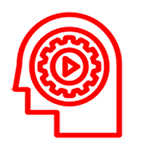What Led Pavlov to Shift From a Study of Theology to That of Animal Psychology
Table of Contents
ToggleIntroduction
Ivan Pavlov, one of the most influential figures in psychology, originally embarked on a very different path in life. Born in 1849 in Ryazan, Russia, Pavlov was destined for theological studies, following in his father’s footsteps as a priest.
However, his journey took a dramatic turn, leading him to revolutionize the field of animal psychology with his groundbreaking work on classical conditioning.
In this article, I will explore the pivotal moments and influences that led Pavlov to transition from theology to animal psychology and delve into the profound impact his shift had on the scientific world.
Early Life and Influence of Theology
Pavlov’s early years were deeply rooted in a religious upbringing. His father, Peter Pavlov, was an Orthodox priest, and the young Ivan was expected to follow a similar spiritual path.
Pavlov’s initial education reflected this expectation, as he studied at the local church school and later enrolled at the Ryazan Ecclesiastical Seminary.
During this time, Pavlov demonstrated a keen intellect and a deep curiosity about the natural world. Although his theological studies were rigorous, his fascination with science and biology began to overshadow his religious education.
The Turning Point: A Fascination With Physiology
Pavlov’s life took a decisive turn when he encountered works on physiology and natural sciences. He was particularly inspired by the writings of prominent scientists like Charles Darwin and Ivan Sechenov. These works introduced Pavlov to the principles of evolution and reflexive action, igniting his interest in the mechanisms of life.
At the age of 21, Pavlov made the bold decision to leave the seminary and enroll at the University of St. Petersburg to pursue a degree in natural sciences. This marked the beginning of his journey into the scientific study of animal physiology and psychology.
Pavlov’s Shift to Animal Psychology
Pavlov’s Shift to Animal Psychology
While studying physiology, Pavlov became deeply interested in the workings of the digestive system. His experiments in this area eventually led to his most famous discovery: classical conditioning. Pavlov observed that dogs salivated not only when they tasted food but also when they saw the lab assistant who fed them.
This accidental discovery prompted Pavlov to investigate further, leading to his development of the theory of conditioned reflexes. His meticulous experiments demonstrated how environmental stimuli could elicit involuntary responses in animals, a breakthrough that laid the foundation for modern behavioral psychology.
Impact of Pavlov’s Transition
Pavlov’s decision to psychology leave theology for science not only altered the trajectory of his own life but also transformed the field of psychology. His work on classical conditioning became a cornerstone of behavioral psychology, influencing countless researchers and therapists.
Pavlov’s legacy endures in various fields, from education to mental health, where his principles are applied to understand and modify behavior.
FAQs For What Led Pavlov to Shift From a Study of Theology to That of Animal Psychology
1. Why did Pavlov originally study theology?
Pavlov studied theology because of his family’s religious background. His father was a priest, and it was expected that he would follow in his footsteps.
2. What inspired Pavlov to shift to science?
Pavlov was inspired by scientific works, particularly those of Charles Darwin and Ivan Sechenov. Their ideas about physiology and evolution captivated him and led him to pursue a career in natural sciences.
3. What is Pavlov best known for in psychology?
Pavlov is best known for his discovery of classical conditioning, which explains how animals and humans learn to associate stimuli with specific responses.
4. How did Pavlov’s work influence psychology?
Pavlov’s research on conditioned reflexes laid the groundwork for behavioral psychology, influencing theories and practices in education, therapy, and neuroscience.
5. How did Pavlov’s religious upbringing shape his early life?
His religious upbringing instilled discipline and a strong educational foundation, which later helped him excel in his scientific pursuits.
Conclusion
Ivan Pavlov’s shift from theology to animal psychology was a transformative decision that reshaped the scientific understanding of behavior. His journey underscores the power of intellectual curiosity and the courage to pursue one’s passions, even when they lead down an unexpected path.
Pavlov’s legacy continues to inspire researchers and practitioners across disciplines, proving that one pivotal decision can change the world.


